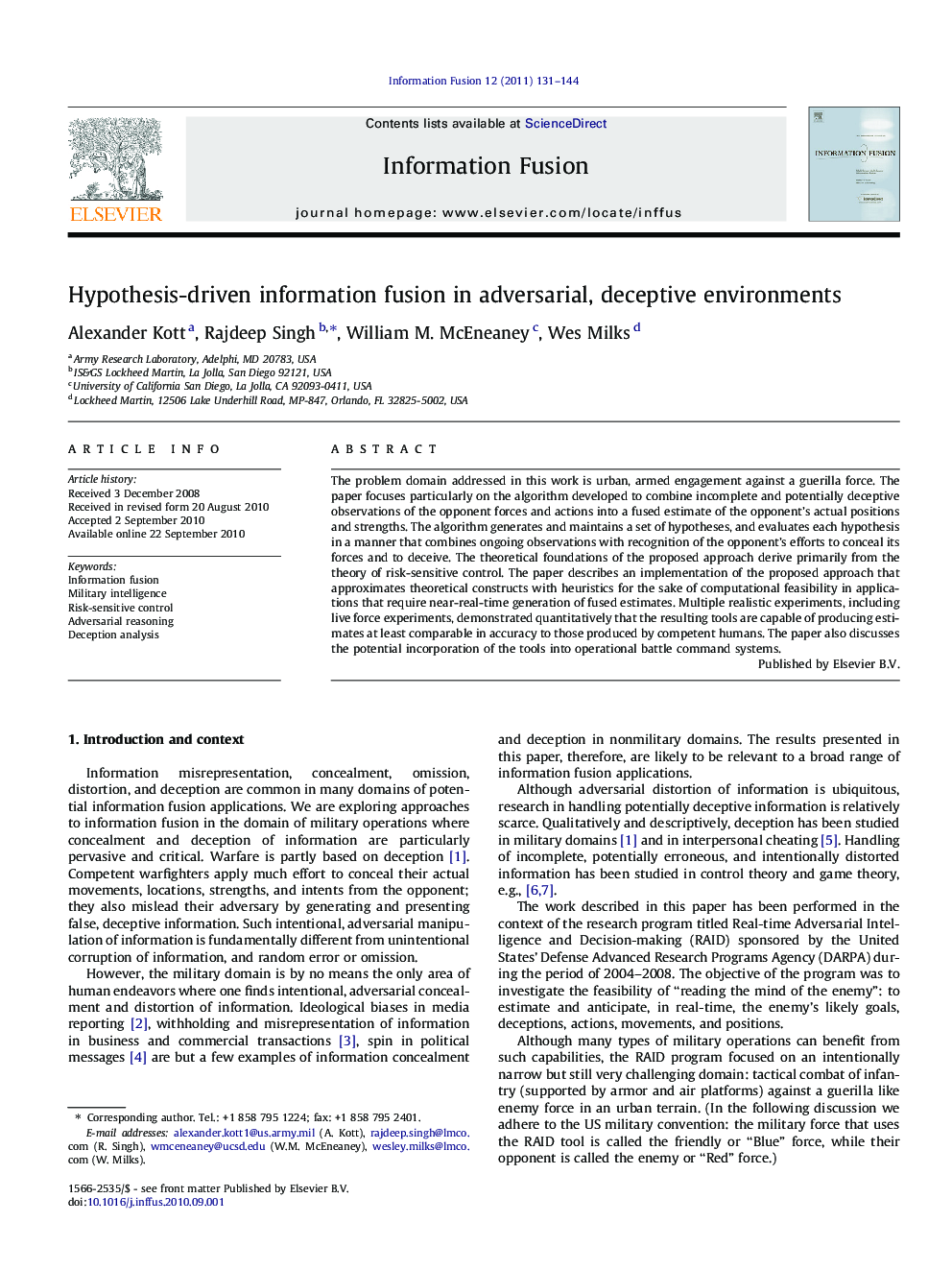| Article ID | Journal | Published Year | Pages | File Type |
|---|---|---|---|---|
| 532213 | Information Fusion | 2011 | 14 Pages |
The problem domain addressed in this work is urban, armed engagement against a guerilla force. The paper focuses particularly on the algorithm developed to combine incomplete and potentially deceptive observations of the opponent forces and actions into a fused estimate of the opponent’s actual positions and strengths. The algorithm generates and maintains a set of hypotheses, and evaluates each hypothesis in a manner that combines ongoing observations with recognition of the opponent’s efforts to conceal its forces and to deceive. The theoretical foundations of the proposed approach derive primarily from the theory of risk-sensitive control. The paper describes an implementation of the proposed approach that approximates theoretical constructs with heuristics for the sake of computational feasibility in applications that require near-real-time generation of fused estimates. Multiple realistic experiments, including live force experiments, demonstrated quantitatively that the resulting tools are capable of producing estimates at least comparable in accuracy to those produced by competent humans. The paper also discusses the potential incorporation of the tools into operational battle command systems.
Research highlights►Information fusion in partial information, adversarial, and deceptive environments. ►Integration of game-theoretic and control-theoretic perspectives for estimation. ►Risk-sensitive state estimation for fusion of incomplete and deceptive information. ►Experimental method for quantifying efficacy of information fusion. ►Comparison of automated deception reasoning tool with human experts.
